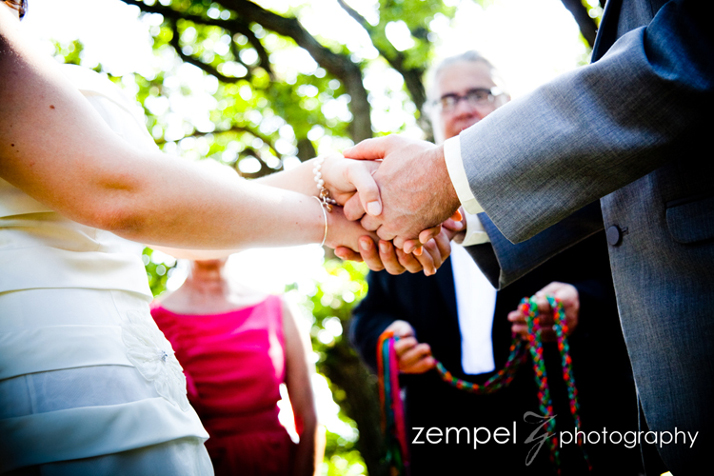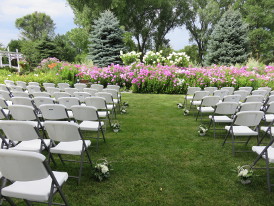Feeling Pressure to Add Glitz and Glamour
If you are feeling pressure to add glitz and glamour to your wedding day, you are not alone. Social media, wedding sites and Pinterest present pictures of over the top wedding ceremonies and celebrations that are putting pressure on couples to “one up” their friends. They encourage you to make the day a “one of a kind experience” and push all kinds of “things” to make this happen. You don’t have to fall into this trap, over extend your budget, and lose yourselves in the process.
Instead, I encourage you to take some time to reflect and talk with each other about what is really important to you about your day, and importantly, why? If you choose things that are authentically you for all aspects of your wedding day it will be personal, unique, meaningful and memorable.
Here are three examples of ways to simplify and resist feeling pressure to add glitz and glamour to your wedding day:
1. Allow your guests to celebrate the pronouncement of your marriage and introduction at the end of your ceremony with a hearty round of applause (and cheers if they feel so inclined). Bubbles, bells, streamers on sticks, and the most recent one I saw – custom flower petal confetti that the guests create for themselves from a confetti bar – can be expensive and often go under utilized.
2. Eliminate runners – that strip of cloth (or these days, often paper) that is rolled down the aisle before the bride enters. Runners can be big business these days as companies offer custom versions with elaborate monograms, poems, graphics and more on expensive fabrics. Runners especially in outdoor ceremony settings, are a trip hazard, roll up in the breeze and are quickly stained with mud and grass. Embrace your outdoor venue and leave the runners behind.
3. Eliminate guest favors, or replace them with a donation to a meaningful cause. There is often tension as you work to identify special favors for your guests and manage the cost of such a large number of them. The engraved shot glasses, personalized drink cozies and ornaments are often left behind at the end of the reception. Save your time and money and make a real effort to speak personally with everyone who attends your wedding, and follow with thoughtful thank you notes for gifts you receive. Realize that wedding favors (beyond a traditional tulle wrapped handful of candied almonds or other cultural favor) only came into vogue in the last 25 years or so. If you feel you need to do something, take the money you would have spent on favors and make a donation to an organization that helps people. Let your guests know with a note on the dinner tables or in the ceremony program as part of a thank you statement.
When you avoid feeling the pressure to add glitz and glamour to your wedding day you reduce your stress, reduce your costs and save your energy for more important things. Your day will be unique because you are as a couple. You don’t need to be tied to traditions that don’t fit you or to expectations put on you by family, friends, and social media.


